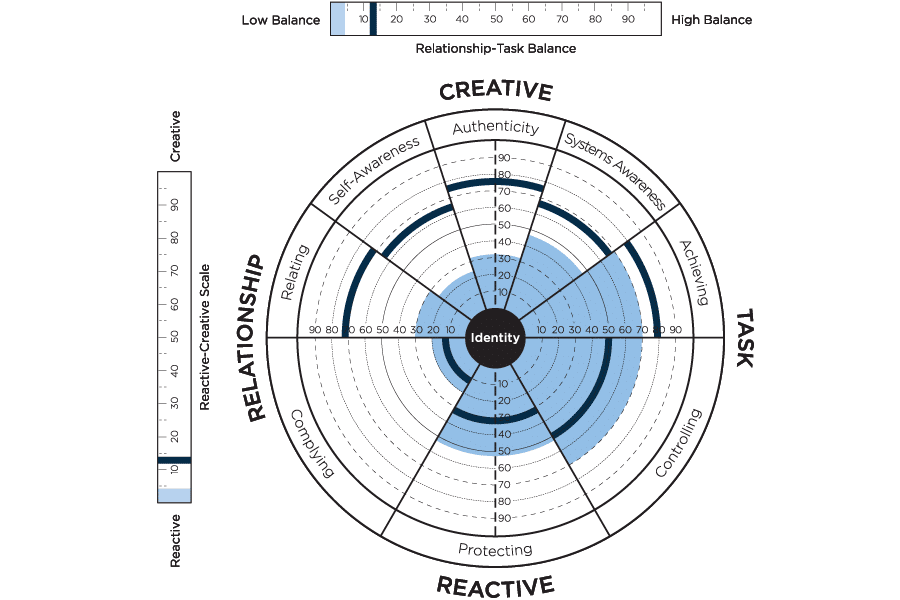Ryan* is a second-generation owner of a successful home furnishing business. Over twenty years ago, he took the helm and updated the company’s marketing and internal processes to match the times. His changes allowed the company to grow exponentially and open an additional location.
The Challenges of Success
As the company grew, Ryan and his team hit the occasional bump, but things continued to run smoothly. Weekly meetings, tracking metrics, and taking care of their employees helped the place run like a purring engine. To take care of their employees, they provided leadership training with “…success helping many of our leaders relate better, become more self-aware, and lead in a transparent, authentic manner.”
Nothing felt out of whack that needed attention other than extending their leadership abilities to avoid Ryan’s fear of stagnation. But how to avoid stagnation without rocking the boat was something they had no idea how to work through. In 2019, Ryan knew they had to tackle the question.
Discovering Underlying Assumptions and Beliefs
Tim JohnPress and I were called to help create a path forward during Ryan’s annual off-site strategic meeting. However, before the off-site, Ryan had his employees take part in a Collective Leadership Assessment (CLA). The CLA is an assessment that takes a deep dive into how leadership is working across an entire organization, looking at both individual leaders and the leadership team. It is a great way to see how effective the current leadership is and where they can improve. The CLA shows what employees think about the leadership team’s performance compared to where they think it should be. Basically, it points out areas where the leadership team needs to step up their game, which helps any company grow faster.
The CLA results were discussed during the strategic meeting, and after deeper conversations, the results led to several conclusions about underlying assumptions affecting how they operated. Assumptions are unspoken beliefs, ideas, or principles that shape a person’s perception, reasoning, and decision-making.
Business, family, department, friendship, and relationship operate with assumptions guiding interactions. Here are ways in which underlying assumptions and beliefs can affect relationships and businesses:
- Communication
- Expectations
- Stereotyping
- Trust
- Openness
- Empathy
With help from Tim and me, Ryan’s team discovered these and many other outward and underlying assumptions and beliefs:
- everything was a priority
- hired staff to overcompensate for antiquated systems
- they focused on training the wrong material
- to avoid conflict and enjoy artificial harmony
- they didn’t hold people accountable
Transforming Leadership and Culture
Once all of the 21 assumptions or beliefs guiding their day-to-day were exposed, the conversation shifted. Ryan was no longer worried about stagnation; the light bulb turned on.
The team set out to:
- shift Ryan’s focus from projects to developing people
- block time for mentoring and developing people
- lean into the pain and learning set before them
- openly celebrate achievements
- give permission to celebrate
Ryan’s team wanted to achieve everything from above simultaneously. They also wanted to accomplish it all while expending the same, if not less, energy than they were already using to operate on a day-to-day basis. Mind you, this business was already a top-notch business with the awards and revenue to prove it.
Achieving Remarkable Results
Not only did this business achieve everything it set out to do, but it achieved about 80% of it within nine months**. As for Ryan, “What’s even more remarkable is that in less than one year, it’s completely flipped how I spend my time.” Their changes set the business up for growth, and they experienced immediate growth directly related to their changes.
Employees were happier, efficiency skyrocketed, and – once again tied directly back to different training – customers were happier.
Every business operates with its unique underlying assumptions and beliefs. Learning what these are requires not only a desire to learn them but also courage and a willingness to be vulnerable. Leaders, especially the owner/boss, have to want to do this kind of transformative work. But every time I’ve helped a business take this on, the outcomes are remarkable for everyone involved. Ask me about them by emailing me at boomer@wizardofads.com or calling (573) 268-4109.
*Names changed to protect clients
**As with all transformative work, it’s never-ending, and Ryan knows that. They continue to use the techniques taught during their 2019 annual retreat.
- When the Numbers and the Vibe Don’t Match - July 14, 2025
- When Everyone’s “Good” - June 29, 2025
- What Your Praise Teaches - June 20, 2025

